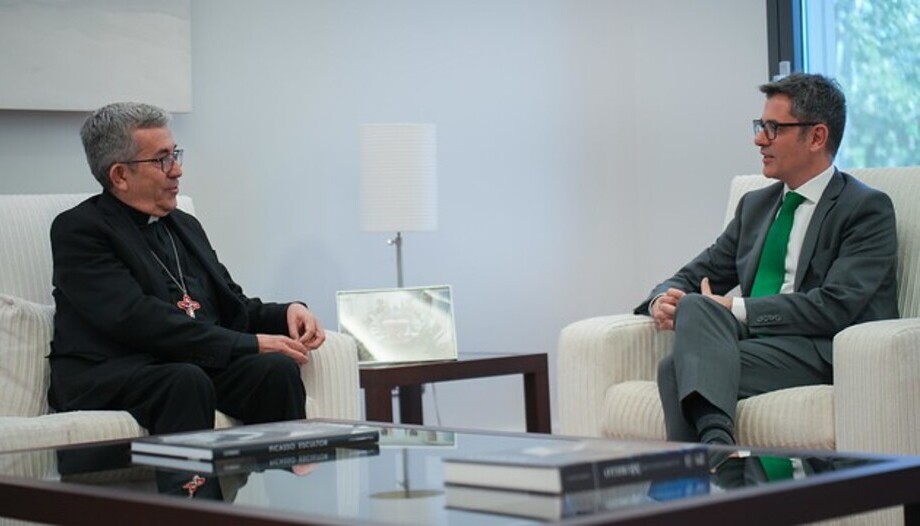The Spanish government approved on Tuesday a plan that provides for compensation to victims of abuse in the Church whose cases have prescribed, as well as the celebration of a State act of recognition to those affected. However, the bishops have expressed harsh criticism of the government plan.
In a press conference after the council, the Minister of the Presidency, Justice and Relations with the Courts, Félix Bolaños, stated that this plan seeks to repair the victims who "for decades have been forgotten and neglected" and to whom "nobody paid attention". To this end, the Government contemplates financial compensation, reports the state agency, and its intention is that the Church will contribute to pay for it.
However, in a couple of hours, the Spanish Episcopal Conference (CEE), presided over by Monsignor Luis Argüello, has made public a note in which it does not accept the government's plan, especially for three fundamental reasons:
Judgment condemning the entire Church
1) "Reparation measures cannot be proposed which, according to the Ombudsman's report, would leave out 9 out of 10 victims. The Church cannot accept a plan that discriminates against the majority of victims of sexual abuse".
2) "The text presented is based on a condemnatory judgment of the entire Church, carried out without any legal guarantee, a public and discriminatory labeling by the State. By focusing only on the Catholic Church, it addresses only part of the problem. It is a partial analysis and hides a social problem of enormous dimensions".
And 3) "Moreover, this regulation calls into question the principle of equality and universality that every process affecting fundamental rights must have. The Church is ahead in the reception of victims, in the formation for prevention and in their reparation. It is up to the public authorities to develop appropriate measures in this task of protecting minors in so many areas of their competence".
"The Episcopal Conference informed Minister Bolaños of its critical assessment of this plan by focusing only on the Catholic Church. It also expressed its willingness to collaborate in the areas of its responsibility and competence, but always to the extent that it addresses the problem as a whole," the note continues. "In any case, the Church maintains its commitment to continue to welcome all victims of sexual abuse, to accompany and repair them."
Coincidences
The bishops add that "the action that the Church has been developing in the face of sexual abuse coincides, in good part, with the five lines of action that this plan proposes. The Church is already working along the lines of welcoming, care and reparation for victims, prevention of abuse, formation of people and raising awareness in society".
"In relation to the plan presented, the EEC considers that, certainly, those measures that refer to all victims are valuable and in that aspect the Church works and will also work, with the experience that she herself can bring to welcome all those who have suffered and suffer from this scourge."
For its part, the government's plan includes the creation of a commission composed of the ministries involved in the implementation of the measures and will seek the participation of the victims and their associations.
Study by the bishops
Francisco César García Magán, Secretary General and spokesman for the Spanish Episcopal Conference, reported at the end of last year that attention to victims of abuse and comprehensive prevention and reparation, from all perspectives, psychological, social, and economic, had been the central theme of the Plenary Assembly of the Spanish bishops that took place from November 20 to 24 last year.
At the end of the work, spokesman García Magán pointed out that the work included several lines proposed by the Coordination and Advisory Service of the diocesan offices for the protection of minors: attention to the victims, and prevention and integral reparation, from all perspectives, psychological, social and economic.
A few days ago, on April 18, the president and the secretary general of the Spanish bishops met with the Minister of the Presidency at the Moncloa Palace, and the tone of the meeting was as follows meeting The meeting was reportedly relaxed and cordial.












